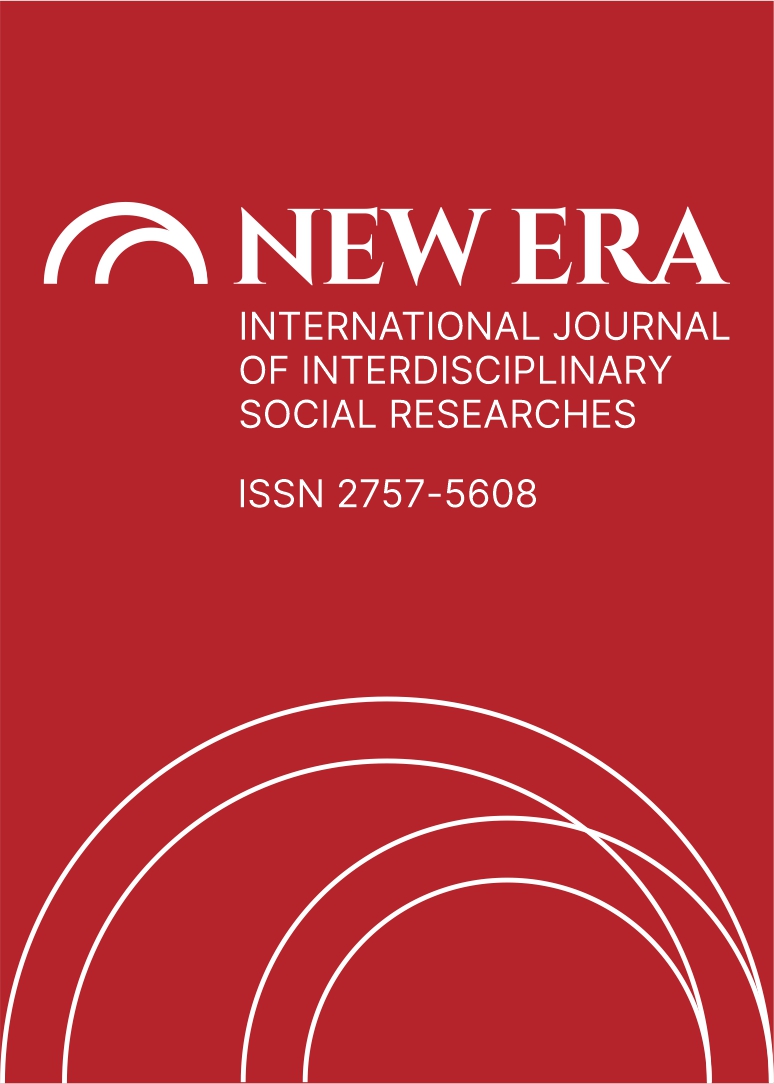JOHN HAWKES’IN KURBAĞA ROMANINDA OEDİPUS KOMPLEKSİ
DOI:
https://doi.org/10.5281/zenodo.7443371Özet
Ana karakteri Pascal tarafından seslendirilen Kurbağa romanı John Hawkes tarafından 1996 yılında yazılmış en iyi bilinen romanlardan biridir. John Hawkes’ın geleneksel realizmin bilinçli reddin sonucu olan romanları birçok edebiyat eleştirmeni tarafından alışılmadık ve öncü kabul edilir. John Hawkes bir yazarın sınırlarını ne kadar aşabileceğini göstermek için özgün yöntemlere başvurarak aşk, ahlak, tatminsizlik ve erotizm gibi belli temalara odaklanmıştır. Kurbağa romanında yazar annesine karşı aşırı derecede saplantılı bir arzu hisseden bir çocuğun çevresindeki insanlara karşı nasıl sevgi, nefret, tatmin, tatminsizlik, güven ve takıntı ile karakterize olmuş bir davranış geliştirdiğini göstermektedir. Oedipus Kompleks diye bilinen bu saplantı 1899’da Avusturyalı nörolojist Sigmund Freud tarafından ortaya konulmuştur. Kitabın ilk bölümü Pascal’ın harika bir çocukluk geçirdiğini işlemesine ve okuyucuya yaşadığı huzurlu evi tanıtmaya ayrılmış olmasına rağmen o yine de annesine olan takıntısının yol açtığı bazı zorluklarla karşılaşır. Bu karşılaştığı zorlukların ana sebeplerinden biri de Pascal’ın annesi tarafından anlatılan kısa hikayelere maruz kalması ve bunlardan derinden etkilenmesidir. Hergün dinlediği kurbağalar hakkındaki hikayeler, Pascal’ın ileride hayatını önemli ölçüde değiştirecek kadar onlara ilgi göstermesine sebep olur. Her zaman karnında yaşayacak bir kurbağayı yuttuğunu düşündüğü zaman davranışları önemli ölçüde değişir, annesine takıntısı artarken babasından daha da çok nefret etmeye başlar. Bu nedenle Pascal’ın hayatı takıntılarının etkisi altına girer. Bu makalede romandaki Freudian Oedipus Kompleksi daha anlaşılır kılmak için Pascal’ın davranışlarını ve bu davranışların annesine olan aşırı sevgisi karşısında nasıl şekillendiğini ele alacağız.
Referanslar
Bocock, Robert J. «The Symbolism Of Father- A Freudian Sociological Analysis.» The British Journal of Sociology June 1979: 206-2017.
Demand, Nancy. "The Identity of the Frogs." Classical Philology (1970): 83-87.
Freud, Sigmund. The Ego and the Id. W.W. Norton & Company, 1923.
Greiner, Donald J. Understanding John Hawkes . South Carolina: University of South Carolina, 1986.
Hawkes, John. «Armand the Frog.» Hawkes, John. The Frog. New York : The Penguin Group, 1996. 20-27.
Hawkes, John. John Hawkes: An interview John J. Enck. 20 March 1964.
—. The Frog. New York: Penguin Group, 1996.
Jacobsen, Mikkel Borch and Douglas Brick. "The Oedipus Problem in Freud and Lacan." Critical Inquiry (1994): 267-282.
McDougall, Joyce. Theatres of the Mind:Illusion and Truth on the Psychoanaltic Stage. New York: Taylor and Francis, 1992.
Peaco, Ed. "The Frog by John Hawkes." The Antioch Review (1997): 243-244.
Recalcati, Massimo. "Hate as a Passion of Being." Qui Parle (2012): 151-182.
Rudnytsky, Peter L. "Oedipus and Anti-Oedipus." World Literature Today (1982): 462-470.
İndir
Yayınlanmış
Nasıl Atıf Yapılır
Sayı
Bölüm
Lisans
Telif Hakkı (c) 2022 NEW ERA INTERNATIONAL JOURNAL OF INTERDISCIPLINARY SOCIAL RESEARCHES

Bu çalışma Creative Commons Attribution-NonCommercial 4.0 International License ile lisanslanmıştır.


